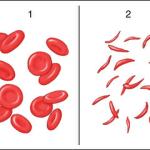The data comes from the National Youth Tobacco Survey (NYTS), an annual, repeated cross-sectional survey of 186,000 US middle and high school students providing the current snapshot.
Disease
We have learned a lot about the SARS-CoV-2 virus during the four years of the COVID-19 pandemic. Because the virus replicates its RNA and mutates in every infection, its spike proteins keep changing.
During my lifetime, there have been several seminal breakthroughs in medicine that greatly changed our ability to prevent or treat disease. Part 1, below, describes several of them. I have a good idea of what some of the next ones will be.
End-of-life care is an uncomfortable topic for many if not all of us. Many individuals express a preference for dying in their own homes, providing a sense of control, privacy, and the ability to be surrounded by family and friends.
The CDC and others are sounding alarms about COVID hospitalization rates increasing by 20% in recent weeks.
The new booster, available since September, is effective against the currently dominant SARS-CoV-2 variant in the U.S., JN.1.
Earlier, I wrote about the newly proposed regulation for lead in drinking water and other lead sources, including paint and air.
The study, deeply grounded in genetic mapping, builds from our understanding of the genetic underpinning of MS into gene-environmental interactions both now and in the Bronze Age.
The social determinants of health (SDOH) include your economic, family, and community stability, the neighborhood and built environment, your educational attainment, your access to healthcare, and its quality.












